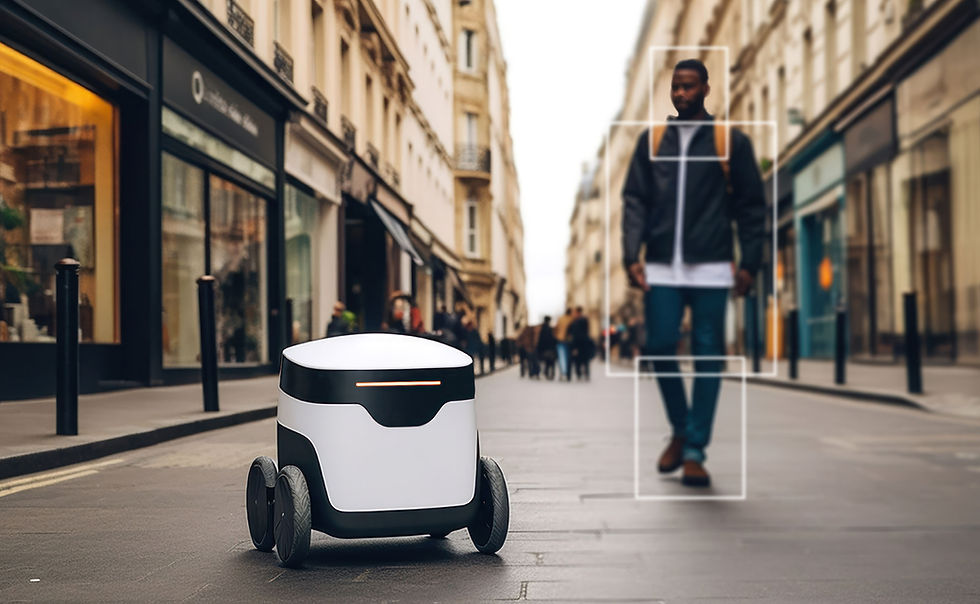Are AI Companions Boosting Our Mood or Just Making It Worse?
- Happiest Life

- Jul 1, 2025
- 4 min read

As technology evolves, it's reshaping our experiences, especially in mental wellness. AI companions, like chatbots and virtual therapists, have emerged as digital support systems for many. But a pressing question remains: Are these virtual friends truly enhancing our mental health, or are they just a temporary distraction from deeper issues?
Understanding AI Companions
AI companions are created to simulate human-like conversations, engaging users in supportive dialogues. These can range from basic chatbots that offer friendly chats to more sophisticated virtual therapists that employ techniques like cognitive behavioral therapy. According to a report from the Global Wellness Institute the mental wellness sector will grow at an annual rate of 12.8% through 2027, reaching a market size of $330 billion (Global Wellness Institute, 2024). The main goal of these virtual interactions is to fulfill emotional needs and promote overall mental well-being.
The Positive Side of AI Companions
Accessibility: AI companions are available around the clock, unlike traditional therapy that often involves scheduling and costs. This constant availability can be a lifeline for individuals in crisis (Cross et al., 2024). Some people who use AI therapy tools did so after regular office hours, proving these tools can bridge critical gaps in support.
Reducing Stigma: Many people hesitate to seek mental health support due to fear of judgment, and AI companions are designed to provide a safe, anonymous space for expressing feelings. Research suggests that some users feel more at ease sharing with AI tools than with people, though specific statistics vary across studies (Siddals et al., 2024).
Coping Tools: AI chatbots often offer practical resources such as mindfulness exercises, guided meditations, and mood tracking features. These tools can help users develop healthy coping strategies. For example, users of specific AI platforms report a 30% improvement in stress management after engaging with these resources regularly (Vorecol).

The Dark Side of AI Companions
Lack of Human Connection: While AI companions simulate interaction, they cannot replace the emotional depth found in human relationships. Research indicates that some users feel more lonely after relying primarily on AI for support. Genuine human connection is vital for emotional recovery.
Over-reliance on Technology: Excessive dependence or high-intensity use of AI chatbots can correlate with reduced socialization with real people and increased emotional dependence on AI companions (ArXiv, 2025).
Inaccurate Responses: Despite advancements, AI can provide misleading information (Monteith et al., 2024). There have been many cases where miscommunication led to increased anxiety for users. It is crucial for individuals to remember that these companions should complement, not replace, professional mental health care.
Striking a Balance
It is important to find a healthy balance between utilizing AI companions and engaging with human connections. These digital tools can be great for immediate support but should not replace meaningful interactions with loved ones or mental health professionals.
Think of AI companions as one part of your mental health toolkit. They can be especially useful during moments of anxiety, acting as a bridge until human connection can be sought. Approach AI as a helpful resource rather than a complete solution.
Current Research and Evidence
Research on AI companions is still emerging, but initial findings are promising. The most rigorously quantified improvements in loneliness from digital mental health platforms or AI interventions show a range of 10% to 20% over periods of several weeks to three months. This statistic emphasizes the potential for these digital allies to improve mental health, especially for those with limited access to traditional therapy (Magid et al., 2023).
However, follow-up studies are necessary to examine the long-term effects of relying on AI for mental health support.

Personal Experiences
User experiences with AI companions can vary widely. Some individuals find immense comfort and support, feeling less isolated during challenging times. On the flip side, others express frustration when the AI fails to grasp their emotions fully, which can leave them feeling misunderstood.
Sharing these experiences is vital for understanding both the benefits and limitations of AI companions. Open discussions about mental health can help others navigate their pathways while using these technologies responsibly.
The Future of AI Companions in Mental Health
Looking ahead, the role of AI companions in mental health is likely to evolve, incorporating more personalized and adaptive strategies. Their effectiveness may increase with better data integration and user feedback. However, this advancement must be paired with robust ethical guidelines to ensure user privacy and the accuracy of recommendations.
Reflection on AI Companions
So, do AI buddies boost our mood or make it worse? The reality is nuanced. They provide valuable support and companionship but are not a cure-all for mental health struggles.
It is crucial to engage with AI companions thoughtfully, recognizing their potential while being aware of their limits. In a time where mental health resources are still expanding, finding the right tools, whether digital or human, can profoundly influence our emotional well-being.
Let us navigate this evolving landscape, ensuring technology remains a supportive ally, not a hindrance.



Comments